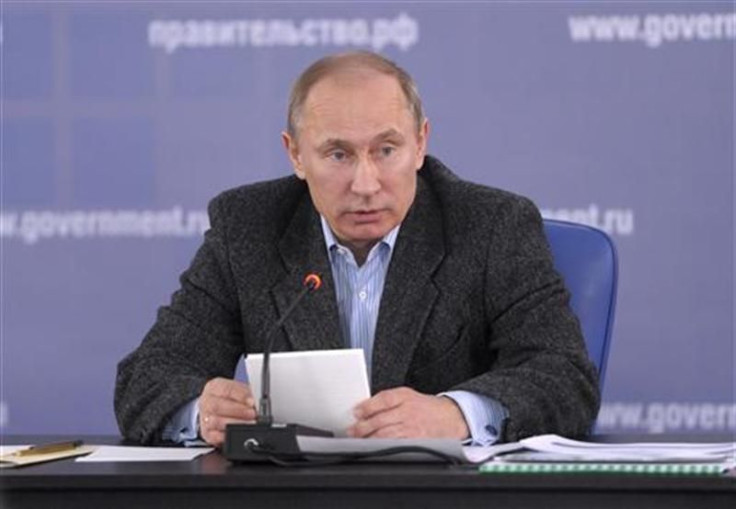Putin Backs Away From Supporting Assad, While Criticizing West

Russian Prime Minister Vladimir Putin, who is expected to be elected as president again in Sunday's election, has issued some conflicting new statements about the ongoing bloodshed in Russia's ally, Syria.
While criticizing western nations for supporting the Syrian opposition, Putin simultaneously appeared to be backing away from Syria's president Bashar al-Assad.
Putin has called for both sides in the bloody Syrian crisis to end the violence. He criticized the west for not demanding that the Syrian opposition put down their arms. “Do they [West] want Assad to pull out his forces so the opposition moves right in?” Putin said at a press conference in Moscow before western journalists.
“Is it a balanced approach?”
Moreover, the foreign ministry in Moscow even asserted it will not move to protect Assad and his regime in the event that the west and other Arab powers intervene militarily in Syria.
A spokesman for the Russian Foreign Ministry said in a statement: “There is no talk about us offering military assistance [to Assad]. Russia isn’t going to do anything of the kind.”
Moscow has up until now defended Assad from western censure and proposed sanctions against his government. Riussia's ties to Syria extend decades back to the rule of Hafez al-Assad, father of Bashar.
Putin refrained from discussing Assad's fate, but asserted that the Syrian regime must enact some democratic reforms. But he insisted that Syrian opposition forces must also make compromises.
“Instead of encouraging parties to the conflict, it’s necessary to force them to sit down for talks and begin political procedures and political reforms that would be acceptable for all participants in the conflict,” he said.
A column in the Arab News questioned Putin's motivations.
“What is interesting is that these statements were not made in front of the Russian electorate, but to six international journalists: is this a new Russian trick, or a message to the West and our region?,” the column said.
“The Russian prime minister stressed that Moscow’s aim is not to help one side [of Syria] at the expense of the other but to secure comprehensive reconciliation... This is not all, Putin refused to openly express any support for Assad, responding to a question about Assad’s chances of surviving the Syrian revolution by saying “I do not know, and I cannot speculate on this.”
Separately, Putin repeated his warnings against Israel and the U.S. from attacking Iran.
“For us, it will have extremely negative consequences,” he said.
He also suggested that a military strike on Iran would prompt a massive flood of Iranian refugees into Russia.
© Copyright IBTimes 2024. All rights reserved.





















